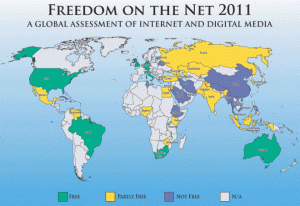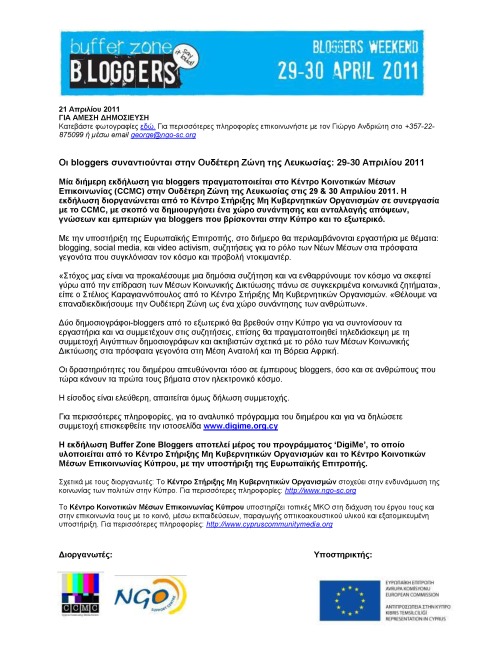The excitement is rising as Buffer Zone Bloggers prepares to launch tomorrow, Friday 29 April 2011. We look forward to greeting our numerous registrants who are coming hungry for fun, information and community. It is also only 5 days away from the World Press Freedom Day, 3 May 2011. So as our final post before the event, we thought we should report on the conditions of internet freedom around the world.

Freedom On The Net 2011 Map
FreedomHouse.org, “an independent watchdog organization that supports the expansion of freedom around the world” for the past 70 years, has released a report, earlier in the month, investigating the global state of internet freedom. According to Freedom on the Net 2011: A Global Assessment of Internet and Digital Media, cyber attacks, politically motivated censorship, and government control over internet infrastructure are among the diverse and growing threats to internet freedom.
As internet communication explodes around the globe, with the number of users doubling during the past two years, certain governments seem to be increasingly inclined towards restricting the free flow of information and otherwise inhibiting the rights of users. “These detailed findings clearly show that internet freedom cannot be taken for granted,” said David J. Kramer, executive director of Freedom House. “Nondemocratic regimes are devoting more attention and resources to censorship and other forms of interference with online expression.” But it’s not only the autocratic regimes that are following the trend. The United States comes second, after Estonia, lagging behind in terms of broadband penetration and connection speeds. Further, the U.S. government’s surveillance powers seem to provide cause for some concern.
Freedom on the Net 2011 identifies key trends in internet freedom in 37 countries. Evaluation for each country is based on barriers to access, limitations on content, and violations of users’ rights. More than half of the countries evaluated, demonstrate a negative trajectory of measures taken in dealing with the above. Their actions include crackdowns on bloggers, increased censorship, and targeted cyber attacks, often coinciding with broader political turmoil.
For more information on the subject please click on the following links.
IFEX: extensive article on Freedom on the Net 2011
FreedomHouse.org: the organization, the report, the media
World Press Freedom Day: info








